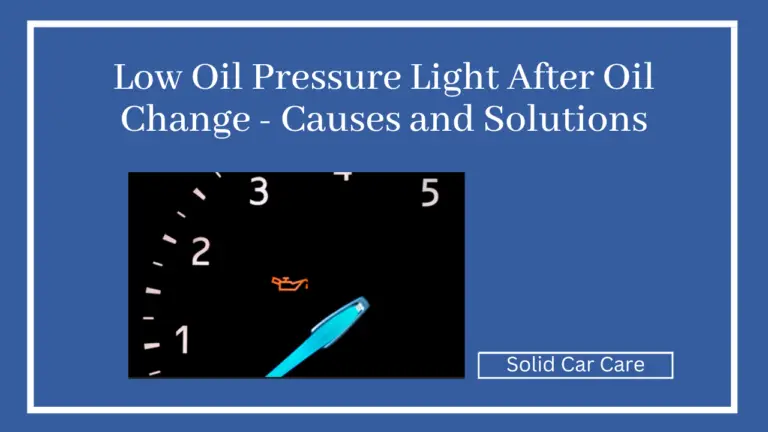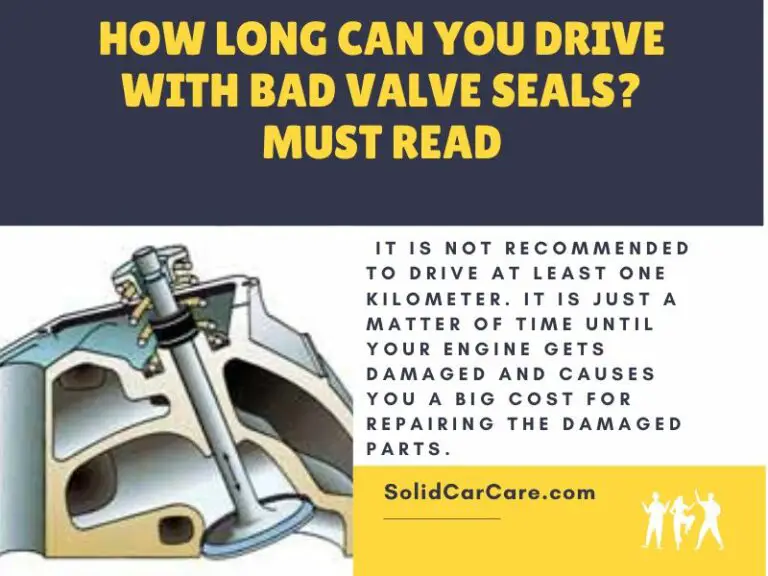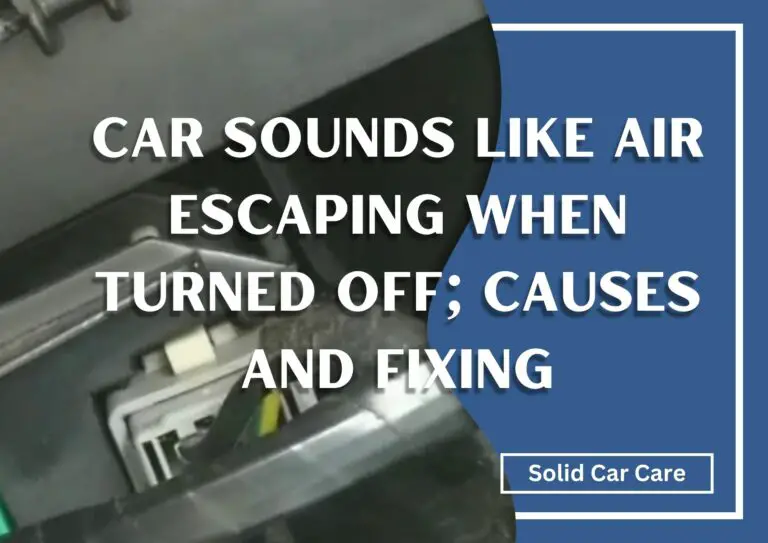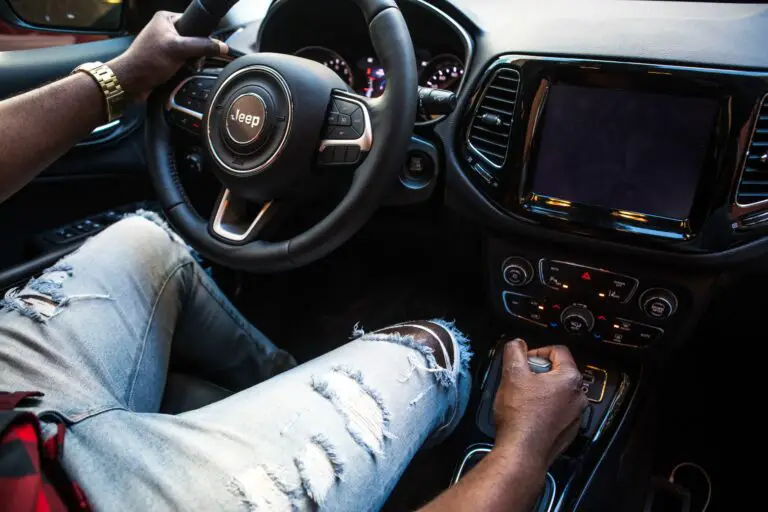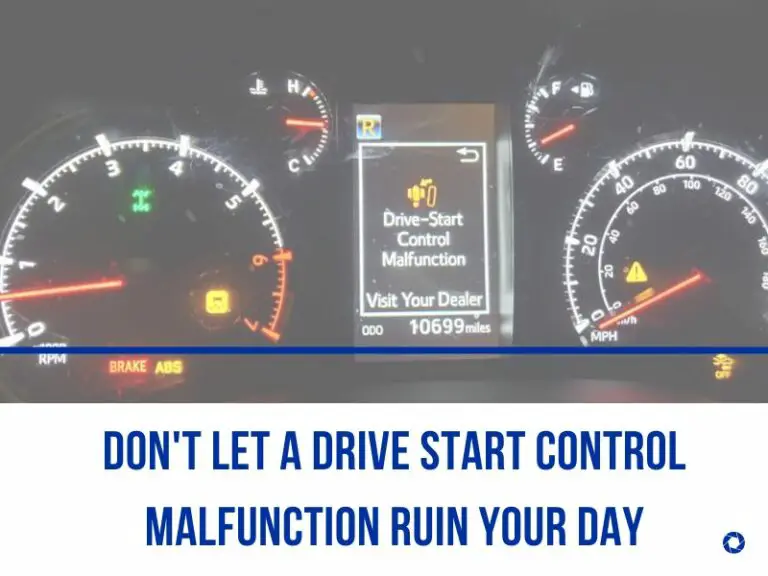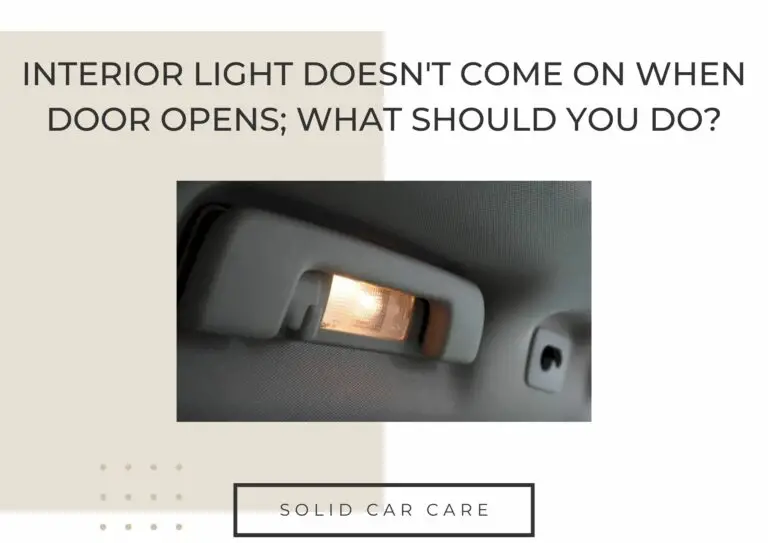Car Making Popping Noise; Causes, Diagnosing and Preventing
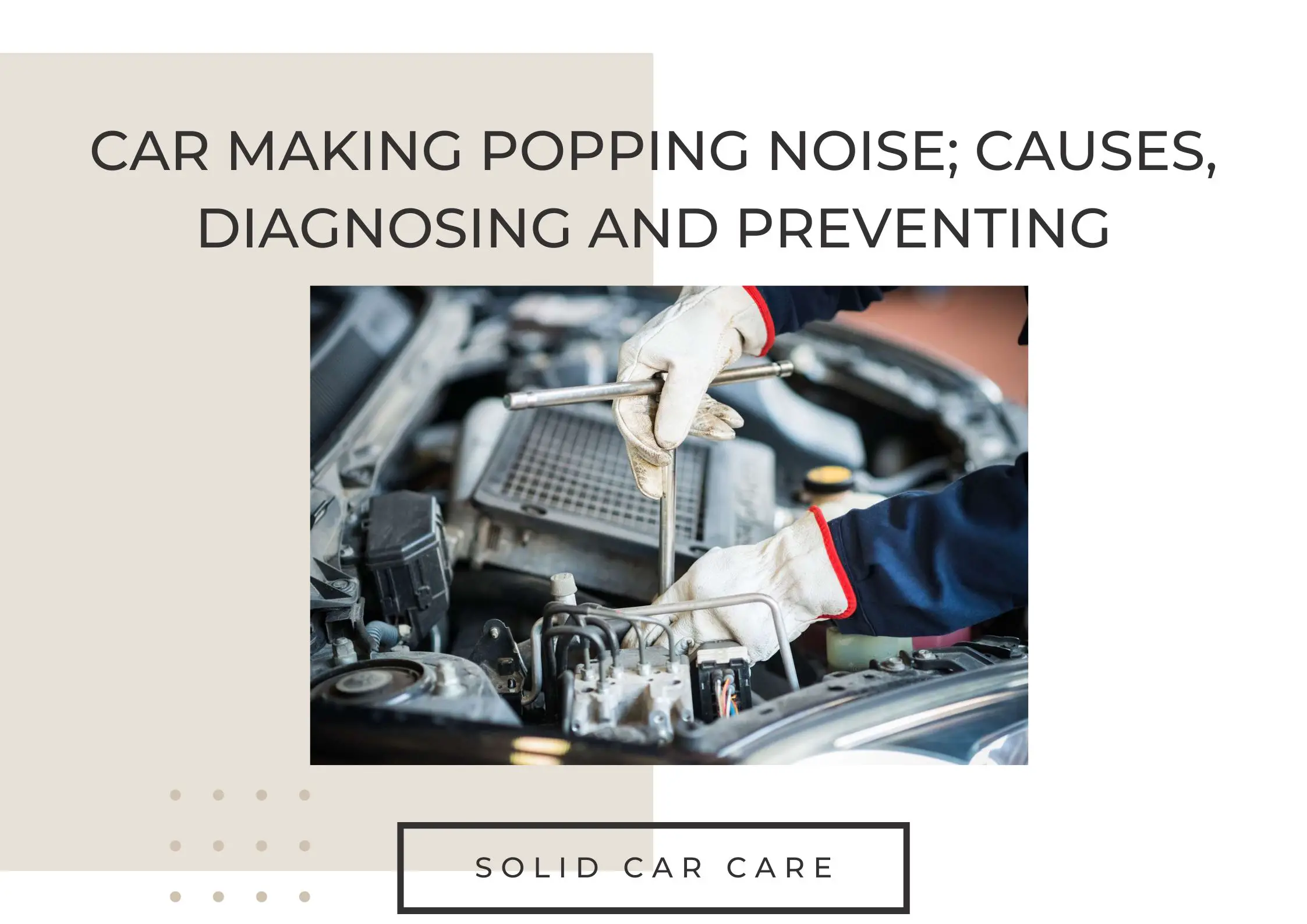
Does your car make a popping noise that’s driving you crazy? This annoying sound can be caused by various issues, ranging from minor to severe. Regardless of the cause, it’s important to address the problem promptly to prevent further damage and ensure your safety on the road.
In this article, we’ll explain what causes popping noises in a car, identify the common reasons for this issue, and provide tips on diagnosing and preventing it. Welcome to “Solid Car Care”, where we help you out to fix your car ASAP.
Table of Contents
- Understanding the Popping Noise
- How to diagnose the problem DIY?
- Why do cars make a popping sound?
- How to fix a car with popping noise?
- Preventing Popping Noises
- Conclusion
Understanding the Popping Noise
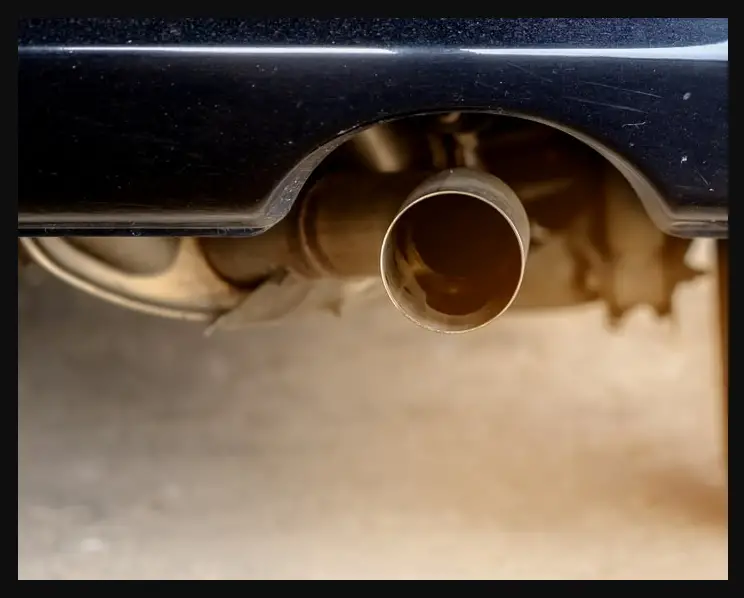
Popping noises in a car can take different forms, such as clicking, popping, knocking, or grinding. These sounds can originate from various parts of the vehicle, including the suspension, engine, or brakes.
The causes of popping noises in a car can be traced back to worn-out or faulty components that fail to function properly. For instance, a bad CV joint, malfunctioning engine part, or loose exhaust component can all lead to popping noises.
How to diagnose the problem DIY?
Diagnosing the problem yourself can be challenging, especially if you don’t have experience or knowledge of car mechanics. However, if you’re willing to put in some effort and follow the proper steps, you can diagnose the issue yourself. Here are some steps to follow:
- Step 01: Listen to the sound carefully
Listen to the sound carefully and note the timing, location, and circumstances in which it occurs. Try to identify the area from which the sound is coming from.
- Step 02: Perform a visual inspection of the affected area.
Check for any visible signs of damage, wear and tear, or loose components. Look for rust, cracks, or leaks.
- Step 03: Test drive the car to confirm your findings.
Pay attention to how the car behaves when accelerating, braking, or turning. Note any changes in handling, steering, or performance.
- Step 04: Consult your car manual
Consult your car manual or online forums to see if other car owners have experienced similar issues. This can help you narrow down the possible causes of the popping noise.
If you’re still unsure of the cause, seek professional help from a certified mechanic. They have the expertise and tools to diagnose the problem accurately and recommend the best course of action.
It’s important to remember that diagnosing the issue yourself can be risky, and you may end up causing further damage if you don’t know what you’re doing. If you’re not confident in your abilities or feel overwhelmed, it’s best to seek professional help. Your safety and the safety of others on the road should always come first.
Whining Noise When Releasing Clutch: Causes, Symptoms, Diagnosis, and Fix
Solid Car Care
Why do cars make a popping sound?
Let’s take a closer look at the common reasons for a car making a popping noise.
Suspension System Issues
Bad or Worn-Out CV Joints
CV joints are responsible for transferring power from the engine to the wheels. Over time, they can wear out or become damaged, leading to popping noises during turns. Symptoms include clicking or popping noises when turning, vibration, and uneven tire wear.
Faulty Suspension Components
The suspension system plays a crucial role in providing a smooth ride and absorbing shocks. However, worn-out or damaged components can cause popping noises when driving over bumps or uneven terrain. Symptoms include knocking, clunking, or rattling noises, uneven tire wear, and reduced handling or steering response.
Engine-Related Issues
Malfunctioning Engine Parts
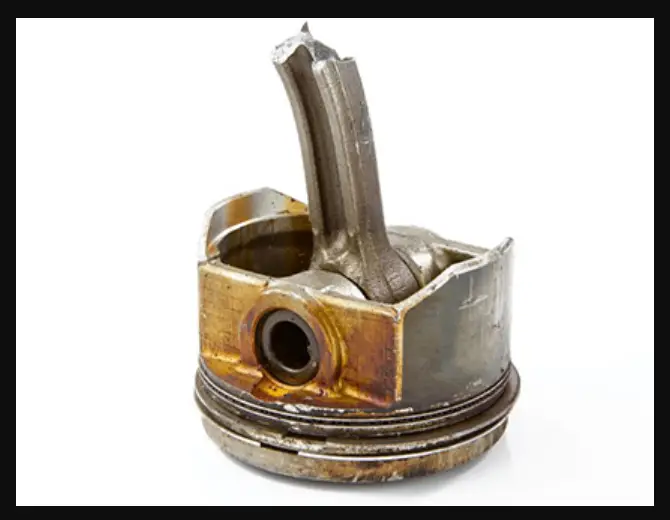
If your car’s engine is not functioning properly, it can produce popping noises. This can be caused by issues such as a faulty spark plug, a damaged timing belt, or a worn-out water pump. Symptoms include rough idling, decreased performance, and stalling.
Loose or Broken Exhaust Components
The exhaust system is responsible for channeling exhaust gases away from the engine. However, loose or damaged components can create popping noises, particularly during acceleration or deceleration. Symptoms include hissing, popping, or rattling noises, reduced power or acceleration, and foul odors.
Brake System Issues
Worn-Out Brake Pads or Rotors
If your car’s brake pads or rotors are worn out, they can produce popping noises during braking. Symptoms include squeaking, grinding, or popping noises when braking, reduced braking performance, and vibration.
Clutch Making Noise When Pressed; Causes, Fixing And Prevention
Solid Car Care
How to fix a car with popping noise?
The cost and time to fix a car with popping noise will depend on the specific cause of the issue. Here are some common causes of popping noises in cars and their methods of fixing:
Worn-out suspension components
To fix this issue, a mechanic will need to replace the damaged components, which can cost anywhere from $200 to $1,000 or more, depending on the make and model of the car. The repair can take a few hours to a full day, depending on the extent of the damage.
Damaged CV joint
To fix this issue, a mechanic will need to replace the damaged joint, which can cost anywhere from $300 to $1,000 or more, depending on the make and model of the car. The repair can take a few hours to a full day, depending on the extent of the damage.
Loose or damaged brake components
Popping noises when braking can be caused by loose or damaged brake components, such as worn-out brake pads or warped rotors. To fix this issue, a mechanic will need to replace the damaged components, which can cost anywhere from $200 to $1,000 or more, depending on the make and model of the car. The repair can take a few hours to a full day, depending on the extent of the damage.
Damaged axle
Popping noises when accelerating or decelerating can be caused by a damaged axle. To fix this issue, a mechanic will need to replace the damaged axle, which can cost anywhere from $500 to $1,500 or more, depending on the make and model of the car. The repair can take a few hours to a full day, depending on the extent of the damage.
Low power steering fluid
Popping noises when turning can be caused by low power steering fluid. To fix this issue, simply add more fluid to the reservoir. This can cost as little as $10 for a bottle of fluid and can be done in a matter of minutes.
It’s important to remember that these are just some of the common causes of popping noises in cars, and there may be other causes that require different methods of fixing.
Preventing Popping Noises
Regular car maintenance is crucial to prevent popping noises and ensure your safety on the road. Here are some tips on how to avoid common causes of popping noises:
- Schedule regular maintenance checks with a certified mechanic
- Avoid rough driving, such as sudden stops or accelerations
- Install aftermarket parts properly and according to the manufacturer’s instructions
- Replace worn-out components promptly to prevent further damage
Conclusion
A car making a popping noise can be frustrating and even dangerous. However, by understanding the common causes and symptoms, you can diagnose and prevent this issue. Don’t ignore warning signs or delay seeking professional help if needed. Remember, safety always comes first.
Additionally, it’s important to be aware of your driving habits and adjust them accordingly. Avoid sudden stops or accelerations, and try to drive smoothly and calmly. This can help reduce the stress on your car’s components and prevent popping noises.
In conclusion, popping noises in a car can be caused by a variety of issues, ranging from minor to severe. By understanding the common causes and symptoms, you can diagnose and prevent this issue. Remember to prioritize safety and seek professional help if needed. With regular maintenance and safe driving habits, you can keep your car running smoothly and quietly for years to come.

